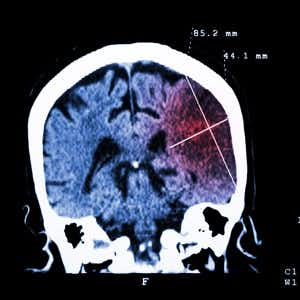
People who experience a transient ischemic attack, also known as a TIA or a minor stroke, are at a significantly increased risk for another blood clot in the brain. In a TIA, the clot resolves on its own without causing lasting damage. But a persistent clot in the brain makes for an ischemic (pronounced iss-KEE-mik) stroke. The consequences can be devastating. As a result, doctors often prescribe anticlotting drugs such as rivaroxaban (Xarelto), clopidogrel (Plavix) or aspirin to prevent stroke.
How Effective Is Aspirin to Prevent Stroke?
Aspirin is an old drug. Although it keeps blood platelets from sticking together to form blood clots, it doesn’t get much respect. It is, however, a standard treatment to prevent a recurrent stroke. Researchers recently published the results of an international study comparing aspirin along with Plavix to just aspirin to prevent stroke (New England Journal of Medicine, May 16, 2018).
The scientists recruited 4,881 patients who had experienced a high-risk TIA or a minor stroke. They assigned these individuals randomly to take either a combination of clopidogrel, the generic name for Plavix, together with aspirin or aspirin alone.
The investigators stopped the study early, when only 84 percent of the expected volunteers were enrolled. A committee set up to monitor safety data found that the combination treatment significantly reduced the risk for a blood clot in the brain. Five percent of the people taking the combination treatment had a “major ischemic event” defined as a stroke, a heart attack or death from one of these. That compares well to 6.5 percent of the volunteers who took only aspirin.
Greater Risk of Bleeding:
The downside, however, was that the combination increased the risk for hemorrhage over 90 days more than aspirin alone. The percentages: 0.9 percent of those on clopidogrel and aspirin vs. 0.4 percent of those on nothing more than aspirin to prevent stroke. That comes out to more than twice the chance of a serious bleed. When doctors and patients decide whether to use combination therapy or rely on aspirin by itself, they will want to take these findings into account.
A different study published at the same time compared Xarelto with aspirin to prevent stroke. Although people taking Xarelto were just as likely as those taking aspirin to have a second stroke, they were about twice as likely to have a serious hemorrhage.

